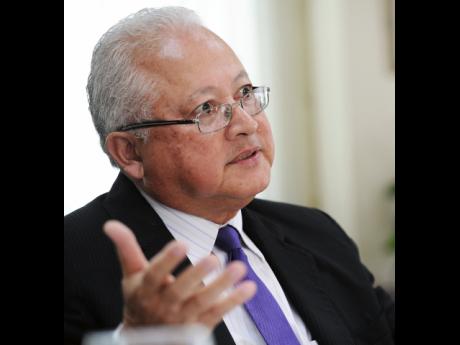Judges lenient with people who sexually abuse persons with disabilities?
Some judges are allegedly being lenient in punishing able-bodied people who have been convicted of sexually assaulting disabled people, the Combined Disabilities Association has said, surprising legislators.
"The association feels that penalties applied for abuse against a person with a disability are usually less than those assigned for abuse against other persons, which they feel is a clear case of discrimination," Christine Hendricks read yesterday to a parliamentary committee.
The committee, chaired by Justice Minister Delroy Chuck, is reviewing Jamaica's Sexual Offences Act and other related laws to strengthen the protection of vulnerable populations.
Hendricks, the executive director of the Jamaica Council for Persons with Disabilities, presented submissions on behalf of several groups in the disabilities community.
Chuck was surprised at the claim about discriminatory application of penalties, saying his experience was different. "Why do you say that? I've always felt if the victim is disabled, the penalties tends to be greater.
"To the best of my knowledge, where persons have taken advantage, say, of a mentally disabled person, or even a young person, judges have gone out of their way to punish the offender more severely because they have taken advantage of a vulnerable person," Chuck said.
Pearnel Charles Jr, the state minister in the national security ministry, intervened, saying, the claim could be based on evidence as well as interpretations of judges' decisions.
"I'm asking if you're making that statement, forget our speculation and our anecdotal past experience, do you have an evidential basis upon which you make that statement?" he queried.
Hendricks said that the claim was first presented in 2014 when the committee first met. She said that what was presented yesterday was an update from the Child Development Agency, which stated that while there was no survey, the agency was aware of cases in which judges were lenient with accused.
"It is the opinion of the CDA (Combined Disabilities Association)," Hendricks said, "that data on persons with disabilities is not usually included in the demographics that are captured by the relevant organisations, which makes it difficult to adequately substantiate the arguments put forward."
The CDA says that attention is needed in that area and has recommended that the Centre for the Investigation of Sexual Offences and Child Agency include in its reports, data on persons with disabilities.
The Combined Disabilities Association has recommended that modern technologies be acquired to assist in getting evidence for conviction of sexual offenders. It says that this is needed, especially when cases involve persons with intellectual disabilities.
There are also proposals for lawmakers to expand the definition of age to include persons with intellectual disabilities as their mental age cannot be read together with their age from birth.

